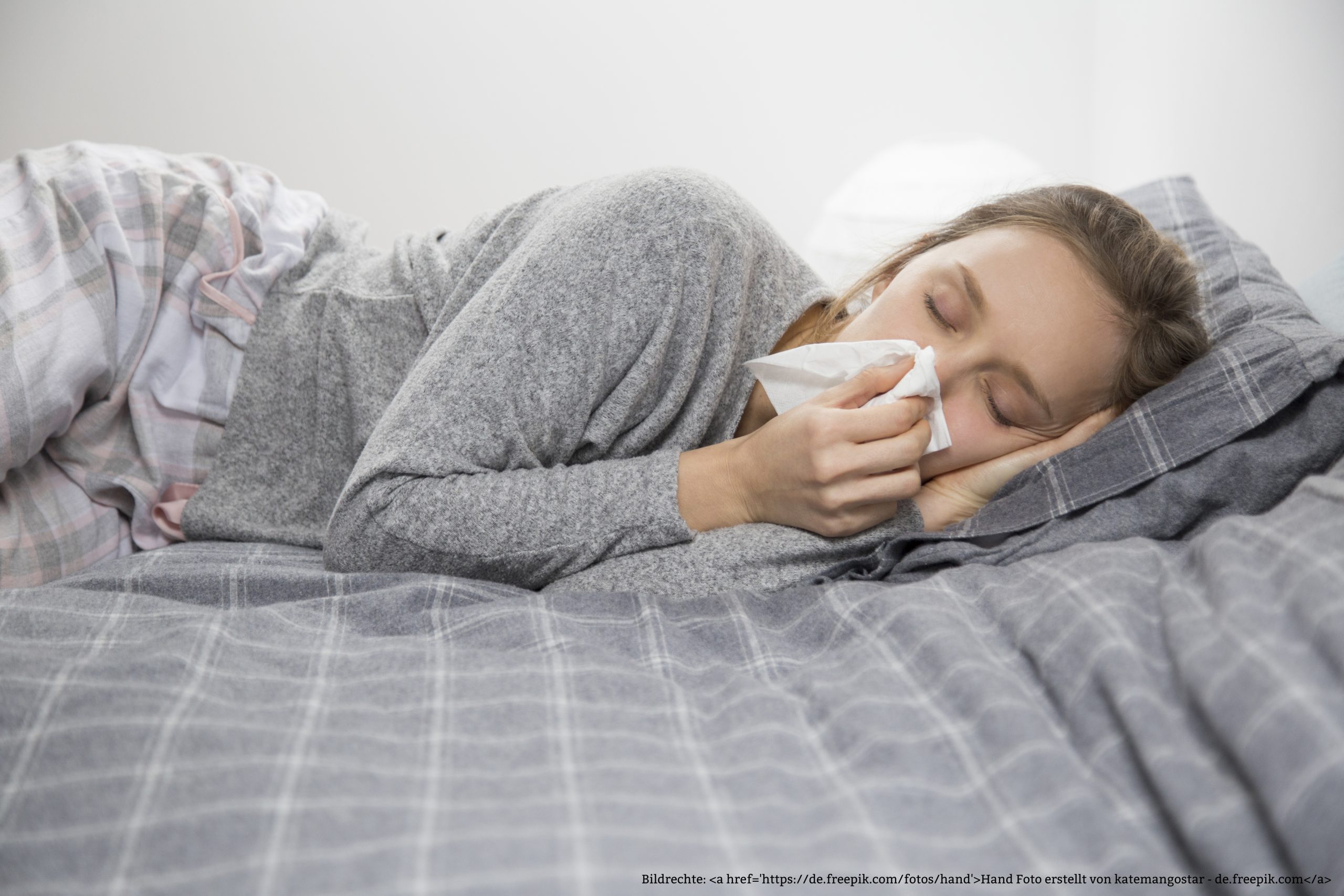
The flu could hit us hard this winter. The main reason is that our immune system has not been trained enough by the many corona hygiene measures. Normally, normal interpersonal contact in everyday life means that we come into contact with enough germs over the year. In this way, our defenses are constantly challenged and trained. But mask, distance, disinfectant and the like had a rather detrimental effect on this immune training. Our defense has not been well prepared for the bad weather season over the past few months. Here are a few tips from our atlas practice to get through the wet and cold season well:
1. The classic: Vitamin C
It’s good practice to start the day with the juice of a lemon. Simply mix the juice with approx. 200 ml of water and drink it in the morning. “Frostbite” can also like to heat the water to approx. 40 ° C.
50 ml of lemon juice, which corresponds roughly to the amount of a lemon, already contains 25 mg of vitamin C. This covers 25% of the recommended daily amount!
2. Immune training with Spenglersan®
The Spenglersan® Kolloide represent a unique immunomodulating process that has been used successfully for over 100 years. It is a homeopathic preparation of killed pathogens and their antitoxins, which are sprayed onto the skin and rubbed in. Spenglersan® G is very suitable for training the immune system for the flu and cold season. It contains antigens and antitoxins from typical germs, which can be a challenge for the defense during the cold season. By using Spenglersan® G, the immune system is specifically built up to defend itself against these germs.
Spenglersan® G is traditionally taken with Spenglersan Erkältungs-Entoxin®. The latter is a homeopathic mixture of monkshood (aconite), arum, sundew and echinacea, which has proven itself in the treatment of flu-like infections, colds, fever and weak immune systems.
• Spenglersan Kolloid G 50 ml; PZN 0156373 9
To prevent colds: rub 5 sprays 3 times a day into the crook of the elbows
• Erkältungs-Entoxin® 50 ml; PZN 570115 0
To strengthen the immune system as prophylaxis and to treat flu-like infections: take 10 drops 3 times a day with a little water
3. Mädesüß-Tee with cold and fever
Bei Mädesüß (Filipendula ulmaria L.) handelt es sich um eine einheimische Pflanze, die auf feuchten Streuwiesen, Auengehölzen und Gewässerufern wächst. Seine Blüten verströmen einen typischen Geruch, der an Medizin erinnert. Die in der Pflanze enthaltenen Inhaltsstoffe wirken fiebersenkend, entzündungshemmend und schmerzlindernd. Außerdem enthält die Pflanze pflanzlich gebundenes Heparin, das blutverdünnend wirkt und in der Lage ist, kleine Blutgerinnsel aufzulösen. Mädesüß kann daher auch zur Thromboseprophylaxe eingesetzt werden.
Die Kommission E empfiehlt den Einsatz von Mädesüß bei Erkältung. Studien haben aber gezeigt, dass es auch gegen Fieber, zur Immunmodulation und bei Hexenschuss, Ischialgie, sowie rheumatischen Muskel- und Gelenkschmerzen wirksam eingesetzt werden kann. *
Zubereitung:
• Mädesüßblüten Dr. Pandalis Bio Tee 100 g, PZN 13352108 oR
30 g (20 Aufgußbeutel à 1,5 g), PZN 15611525 It is the first and so far only organic meadowsweet flower tea available in pharmacies!
• Pour 200 ml of fresh, boiling water over an infusion bag or a teaspoon (1.5 g) of meadowsweet blossom tea per cup and cover for 10 minutes. Drink one cup each 3 times a day.
Wichtig: Nicht einnehmen bei Überempfindlichkeit gegen Salicylate!
* Further information: VorsichtGesund-Blog.
4. Zistrose: Cystus-Lutschtabletten to protect the mucous membranes
The Zistrose is one of the oldest medicinal plants in the Mediterranean and Asia Minor. The sticky leaf secretion produced by its leaves is known to this day as “Ladanum” and was such an important commodity in ancient times that it is even mentioned in the Bible (Gen 37.25, Gen 43.11). The plant contains a large number of polyphenols, which, among other things, have a contracting (astringent) effect on our mucous membranes. These are sealed off and are better protected against external influences and the penetration of bacteria and viruses. Studies have also confirmed that cistus can also be used against viral flu, colds and respiratory infections.
Interesting for the current situation: In an in-vitro study led by Prof. Dr. Jens-Martin Träder from the Institute for General Medicine at the University of Lübeck has demonstrated an antiviral effect of an extract from Cistus × incanus L. Pandalis against the SARS-CoV-2 virus.
According to Prof. Träder, it makes sense to use Cystus Pandalis as a prophylaxis against infections with SARS-CoV-2: “For this, the application in the form of lozenges, which the user should slowly dissolve in the mouth, is best suited. Such administration allows the Cystus pandalis extract to develop its antiviral potential directly at the point of entry of infections. “**
• Cystus 052® Bio Halspastillen 132 Stück, PZN 14186155:
Consumption: 3 times 2 tablets per day
* Further information and sources: VorsichtGesund-Blog.
** https://drjabs.org/wp-content/uploads/2020/12/Traeder_JM_Cystus_Pandalis_bei_Coronainfektion.pdf





